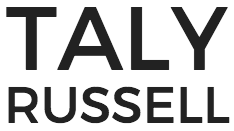Interviewing job candidates can feel daunting at times. It’s normal to feel a bit of anxiety since hiring the right person is a responsibility to be taken seriously. There are certain aspects of the interview that are obvious, such as noting whether or not the person arrived on time and asking questions of strengths and weaknesses. However, there are also qualities that a great candidate will possess that won’t be easy to assess. Things that fall under emotional intelligence include handling adversity and communicating well and those types of skills aren’t often on resumes. An interviewer will have to dig deep to truly get an idea of the person they’re sitting across from.
It’s easy to find advice on how to conduct a successful interview, but here are five common mistakes that an interviewer should avoid making when meeting a new job candidate.
Making quick decisions
There can be pressure to fill positions, especially if the person hiring has been picking up the slack while a role is empty. Remember that the goal is to find the best candidate and that doesn’t often happen by making quick decisions. While it may be exhausting, make sure that you take your time and get a clear impression of each candidate. The person you hire shouldn’t be simply filling a role, but rather bringing something valuable to the company and contributing to the success of your business.
Forming a bias first impression
Sometimes when a candidate fits the mental image of what the interviewer has in mind the rest of the meeting is conducted with less rigor. Avoid forming a strong first impression because the person is dressed appropriately, acts confidently, and has a great resume. All of those things are terrific, however you cannot assume that the candidate is a good fit until you dig a bit deeper. Make sure to ask behavior-based questions and get a feel for their emotional intelligence. Don’t ease up on questions because you assume that they’ll answer in the way you’re looking for.
Forming bias become of commonalities
It’s a very easy mistake to make, but be sure that you’re not subconsciously seeking resumes that are similar to your own. While it can be enjoyable to interview someone that you relate to in experience or education, it’s important that a candidate has experience and knowledge of things that differ from your own. If everyone in an organization has the same skills and mentality there won’t be much room for growth.
Avoiding making a decision
Many times a hiring manager will decide that they’ve chosen the right candidate for the job, but will continue interviewing other people. This may seem like a way to hedge your bets, however it can cause the right candidate to continue interviewing with other companies. Another thing that companies do that can be harmful is waiting to make a decision at all. Even waiting a week doesn’t usually change anyone’s mind on whether or not a candidate is right, but it may be enough time to lose the interest of the best candidate.
Comparing candidates to each other instead of the criteria
Make sure that when conducting interviews you are holding the candidate up to the hiring criteria and not other candidates. If you’ve had a few interviews with people that don’t fit what you’re looking for make sure that you don’t hire a person simply because they are the best candidate you’ve interviewed so far. Make sure to stick to the qualities that the position requires, such as talent, experience, knowledge of the job.

